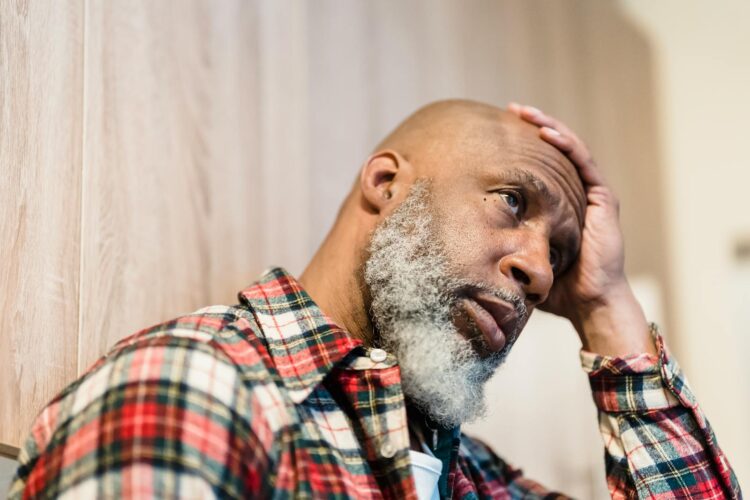
Growing up with emotionally unavailable parents leaves a mark that isn’t always obvious to the outside world. Your basic needs might have been met — food, clothes, a roof over your head — yet something essential was missing. The warmth, emotional validation, and safe space to be vulnerable simply weren’t there. These signs can help you understand the roots of certain patterns and give you a starting point for healing.
You struggle to identify your own feelings.

When you were upset as a child, there wasn’t someone there to help you name and process what you were feeling. Instead, you learned to bury your emotions or ignore them because they didn’t seem to matter to the people who were supposed to care. Now, you might sense something is wrong, but have trouble putting it into words. This disconnect can make decision-making harder, relationships more confusing, and self-understanding feel like a constant puzzle.
Vulnerability feels unsafe.

In your home, opening up about your feelings may have been met with awkward silence, criticism, or a quick change of subject. Over time, you learned that sharing your emotions didn’t bring comfort — it brought discomfort or rejection. As an adult, you might keep your deeper thoughts locked away, even from people who genuinely care. A part of you worries that letting others see your raw emotions will only lead to disappointment, so you wear a mask of composure instead.
You over-rely on self-sufficiency.

You learned early on that you couldn’t depend on your parents for emotional comfort. So you became highly self-reliant, meeting your own needs and rarely asking for help. While this independence can make you resourceful and capable, it can also leave you feeling isolated. Accepting support feels foreign, almost like a loss of control. Even when you’re overwhelmed, you might avoid reaching out — because depending on someone else still feels risky.
You have a hard time trusting others.

When your first relationships in life didn’t feel emotionally safe, it taught you to be cautious. You might take a long time to open up or always keep one foot out the door emotionally. Even when someone proves themselves trustworthy, part of you stays alert for signs they might pull away or shut down. That quiet vigilance can make deep intimacy feel like something you have to tiptoe toward rather than relax into.
Emotional distance feels normal to you.

Because you grew up in a household where affection, warmth, and open communication were limited, emotional distance can feel familiar — even comfortable. You might gravitate toward relationships where people keep things surface-level, simply because it matches what you’ve always known. At the same time, a part of you longs for more connection but isn’t sure how to create it without feeling exposed.
You minimize your own needs.

When you sensed your parents didn’t have the capacity to meet your emotional needs, you may have learned to silence them. As a child, that was a survival skill — if you didn’t ask, you couldn’t be rejected. As an adult, you might downplay what you want in relationships, careers, or friendships. Over time, this can leave you feeling unseen and undervalued, even if you can’t pinpoint why.
You find it easier to care for others than to be cared for.

Because you rarely experienced emotional nurturing yourself, giving it to others can feel more natural than receiving it. You might excel at listening, comforting, and supporting the people in your life, yet feel uncomfortable when they try to return the favor. Accepting care can stir up feelings of vulnerability or fear that it won’t last, so you gently deflect it instead.
You confuse emotional intimacy with burdening someone.

Without examples of healthy emotional closeness, you might interpret deep connection as “too much” for other people. You worry that sharing your feelings could push them away, so you keep your conversations light or practical. This can prevent you from experiencing the genuine, mutual emotional support you deserve — leaving you lonely even in relationships that look fine on the surface.
You struggle to set healthy boundaries.

When your parents were emotionally unavailable, you may have grown up without clear examples of healthy limits in relationships. You might swing between having overly rigid walls that keep people at a distance and letting others cross lines because you’re afraid of losing them. Boundaries can feel like a foreign language — something you know is important but were never taught to speak fluently.
You avoid conflict at all costs.

If conflict in your home led to withdrawal, coldness, or emotional shutdowns from your parents, you may have learned to sidestep it completely. Now, you might bottle up concerns, agree when you don’t mean it, or retreat when tension rises. While avoiding conflict can keep the peace temporarily, it often leaves issues unresolved — and you quietly carrying the weight.
You struggle to believe your feelings are valid.
When you expressed emotions as a child, you may have been told you were overreacting or being too sensitive. Over time, you internalized the belief that your feelings were wrong or unimportant. Now, you might second-guess your own reactions, wondering if you’re exaggerating. This self-doubt can make it difficult to advocate for yourself or trust your emotional instincts.
You may feel drawn to emotionally unavailable partners.

We tend to gravitate toward what feels familiar, even if it isn’t healthy. If emotional distance was the norm growing up, you might unconsciously choose partners who keep you at arm’s length. These relationships can recreate the old cycle — you doing the emotional work, them holding back — without you fully realizing why it feels so familiar.
You over-analyze people’s moods.

Because your parents didn’t openly communicate their emotions, you learned to read subtle cues: a change in tone, a glance, a pause. This hyper-awareness might have helped you as a child, but now it can lead to overthinking and misinterpretation in relationships. You may spend more time guessing what someone feels than actually asking them.
You feel responsible for other people’s emotions.

If your parents’ emotional state dictated the mood of the household, you may have learned to manage their feelings as a way to keep the peace. That habit can carry into adulthood, where you feel guilty when others are upset — even when it has nothing to do with you. This constant emotional caretaking can be exhausting and keep you from focusing on your own needs.
You struggle to believe you are worthy of love.

When love from your parents felt distant, inconsistent, or transactional, it planted seeds of doubt. You may still wrestle with the idea that someone could love you fully and unconditionally. Even when you’re told you’re valued, part of you questions if it will last — because the first people who should have made you feel emotionally safe couldn’t.

